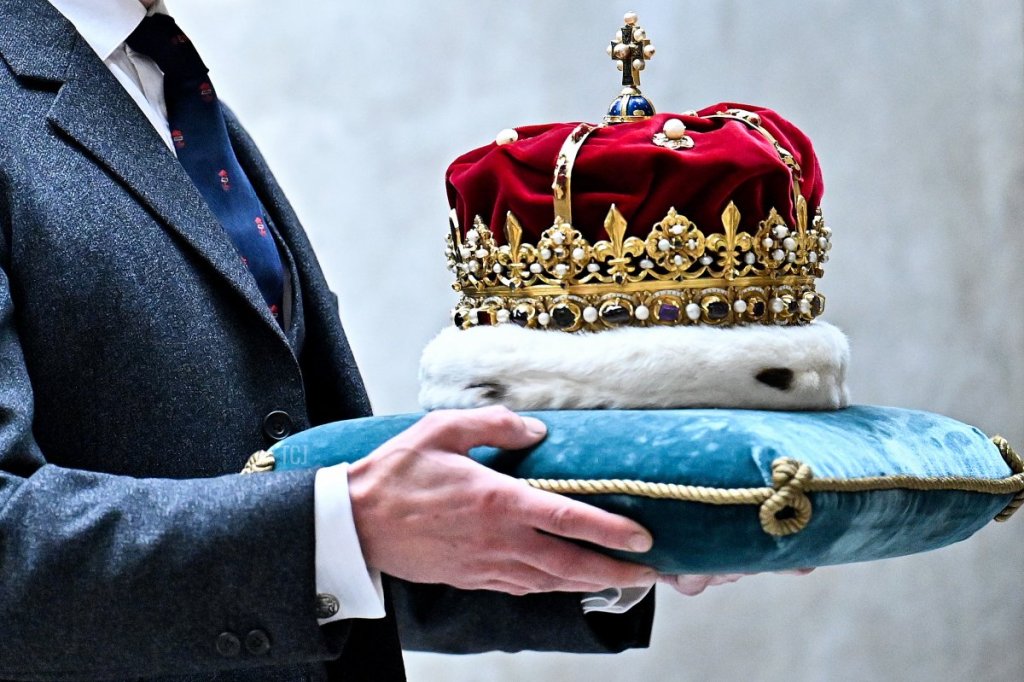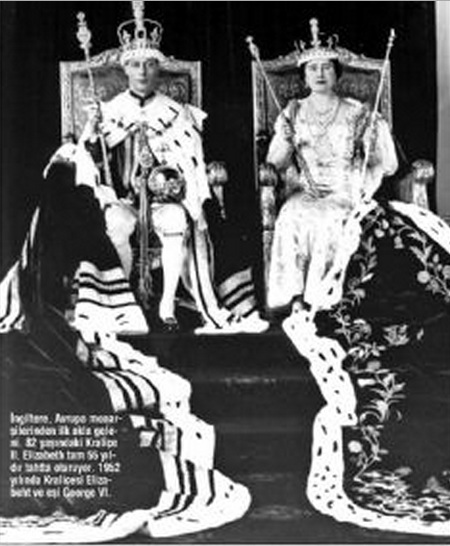
THE MODERN ALLURE OF MONARCHY: TRADITION AND STABILITY
Monarchy is the oldest form of governance in the history of humanity. For centuries, rulers from specific families governed in almost every country. At the beginning of the 20th century, there were very few countries in Europe, except for France and Switzerland, that were not ruled by monarchy. While the republic was not unknown, for many, it was a frightening regime.
The republic, once implemented in ancient Greece and Rome, had its heyday but eventually ended with a whimper, giving way to monarchy. Countries known as Italian republics, like Venice, were actually governed by an oligarchy of the elite. For instance, in Venice, a doge chosen by the nobles from among themselves would rule. Due to the lack of a strong dynasty, even the independence of Poland and Hungary was lost.

Who Cuts Off His Head with His Own Hand?
In the olden days, monarchy was thought to symbolize the relationship between God and His subjects on Earth. It was believed that the ruler governed his subjects with the will of God and the power derived from Him. In fact, the saying of the Prophet Muhammad (peace be upon him), "The Sultan is the shadow of Allah on Earth; the oppressed seek refuge in him," expresses this concept. The ruler becomes a means for the application of divine laws and the manifestation of divine will on Earth.
Abbon de Fleury, a monk/priest who lived in France in the 11th century, says: "Who is mad enough to cut off his own head with his own hands?! These peoples who forget their own salvation will perish by turning their own strengths against their kings."
Monarchy Overwhelmed by War
World War I shook the world so much that in the blink of an eye, most monarchs in many European countries lost their crowns. They were forced to give way to republics. Centuries-old German, Austrian, and Ottoman monarchies collapsed in a surprising manner. Even the Russian empire, which was not among the defeated in the war, was buried by the Bolsheviks. In the face of the resistance of the monarchists, the Tsar and his family were killed. The remaining Albania, Yugoslavia, Romania, and Bulgaria also vacated their thrones during World War II. In these places, pro-Soviet regimes were established.
Italy, defeated, saw its monarchy toppled with the help of the papacy, which had held a historical grudge against itself since the establishment of unity in the country in 1860. Newly formed states like Ireland, Czechoslovakia, Hungary, Estonia, Latvia, Lithuania, Finland, and others, both lacked national dynasties and, following the fashion of the time, were compelled to accept republicanism.
Monarchy disappeared first in Europe in 1908, in Portugal, and most recently in Greece in 1974. In 1936, the dictator Francisco Franco in Spain formally preserved the monarchy while holding power. He even left a will for the restoration of the monarchy after his death. In 1975, Spain began to be governed by a monarchy again. The king, in a poor and insignificant country, achieved incredible progress economically and democratically, leading it to join the European Union.
Republic Church
The republic is the counterpart of monarchy. If the state is ruled by a dynasty, it is a monarchy; if it is in the hands of the people, it is a republic (res publica). Res publica is Latin and means "public affair." However, a republic is not the same as democracy. In democracy, the government comes to power with the majority vote of the people. It is possible for a monarchy to be democratic and for a republic to be a dictatorship.
Indeed, today, most monarchies are democracies, while most republics tend to be dictatorships. Iran, North Korea, the Soviet Union, and Cuba are republics. On the other hand, England, Sweden, and Japan are monarchies. When the Ottoman Empire collapsed, it had a multi-party democracy, including a socialist party. Contrary to the initial intentions of many republics established in the 20th century, most turned into dictatorships: Russia, Germany, Spain, Portugal, Türkiye, Yugoslavia, Romania, Bulgaria, Albania, Hungary, and more. Aware of this, Atatürk once stated, "The current scene is more or less that of a dictator. The institution that will remain after my death is an authoritarian institution," and in 1930, he allowed a symbolic opposition party for a few days. Therefore, the source of pride might not be the republic but perhaps democracy.
Historically, what is known as a republic, be it Athens, Venice, or Dubrovnik, is not a genuine republic. Power is in the hands of certain individuals (merchants, nobles, soldiers). Ancient philosophers like Socrates, Plato, and Aristotle would disdainfully refer to the republic as the rule of the mob. They were advocates of a philosopher-ruled oligarchy.
Satan's Revenge
Critics of the republic used to say: "The republic is egalitarian. It treats everyone equally (some more equally). Monarchy is just. Everyone gets what they deserve. In a monarchy, people know they are not the rulers. In a republic, they don't know, which makes them more susceptible to control. Because the people think they are in charge, they are less inclined to rebellion."
Even though he was a socialist, Mümtaz Soysal said the following in an article 30 years ago: "In monarchies, the person with charisma, based on heroic deeds from centuries ago, who knows how to conduct themselves impeccably (so to speak, someone who knows how to hold a fork and knife) comes to power. In the other system, there are those who don't know what to do for four years..."
According to the poet Milton, every fallen ruler and every established republic is a revenge taken by Satan from God and humankind. In 1929, Refik Ahmed Sevengil, a member of the CHP (Republican People's Party) in Türkiye, wrote, "We dethroned both the Sultan and Allah together." The spread of this sentiment was greatly contributed to by Freemasonry, established by bourgeois anti-monarchist and anti-aristocracy individuals. In fact, in the past, Masonic lodges were sometimes referred to as the "Republic Church." (Daniel Ligou, Histoire des Francs-Maçons en France)
Tocqueville says, "In none of the periods after the 1789 revolution has national prosperity increased as rapidly as in the 20 years before the revolution." Revolutions that overthrow monarchies had no connection with the people. The people had no issue with the kings. Those who disliked both monarchy and the people were the aristocrats and bourgeoisie. In Ignazio Silone's novel Fontamara, Michele Zompa is quoted as saying, "A government based on elections is always under the command of the wealthy who influence those elections. However, the rule of a single person frightens the rich. Can there be jealousy between a king and a peasant? That would be ridiculous. But between a king and Prince Torlonia, these things are possible."
If Only They Knew...
It is interesting that in Turkey, from the right to the left, the secular to the religious, almost everyone is a republican. However, even in the birthplace of the republic, France, there is a significant proportion of monarchists. There are even political parties that support monarchy. Newspapers that favor monarchy have a large readership.
After the French Revolution, history has been written mostly by republicans, and since literature and media are also in the hands of republicans, extensive publications against monarchy and aristocracy have been made. Not only in history books but also in novels, films, and even fairy tales, all kings are portrayed as tyrants, and nobles are always depicted as villains.
To the extent that no one dares to mention the contribution of monarchy and aristocracy to democracy, or at least to art and aesthetics. Prince Philip used to say, "Ah, if only they knew, the benefit of monarchy is not for the nobles but for the people."
Father and His Family
Prominent French diplomat and France's ambassador to Ankara, Rene Massigli, visited the Kaşgari Dargah (khanqah) in Istanbul after returning from a visit to Piyer Loti in 1940. Sayyid Abdulhakim Arvasi, who was the sheikh of the tekke, was engaged in spiritual guidance there. As Massigli passed by the tekke, he asked his guide Burhan Toprak, 'Where is this?' Burhan Toprak, who knew Sheikh Abdulhakim, replied in French, 'This is the home of an Islamic scholar.' The ambassador was intrigued, and Abdulhakim Efendi welcomed the ambassador, offering tea. During those days, the German army had entered Paris.
In the course of conversation, Abdulhakim Efendi asked, "Why did this happen? Why did the Germans enter Paris? Do you know the reason?" The French ambassador was surprised to hear such words from an elderly scholar. He said, "I don't know. Do you know?"
Abdulhakim Efendi said, "The reason is evident! The cause of Paris falling, the French army being defeated, and the French government is right here. In the past, France was a kingdom. Kings were the owners of the country. They saw the country as their property and the people as their family. They worked for the country like fathers. Now, under the republic, the government changes every four years. No one takes care of the country or the people. They say, 'I'll be leaving anyway.' They just focus on filling their pockets. They didn't take care of the people, didn't take care of the army, didn't take care of the country!" When he said this, the ambassador stood up and exclaimed, "Bravo, you spoke the truth!"
Hungarian novelist Sándor Márai describes the Republic of 1924 France as follows: "They had to act quickly; the country was large, relatives were hungry, and ministers fell rapidly. The 110 or 120 governments of the Third Republic had to feed extremely hungry generations with jobs and tips within fifty years at most. Ministers who could only sit in velvet chairs for a few hours had, with fervent ruthlessness, appointed their relatives and the propagandists who helped them rise to various positions, allocating retirement pensions and bonuses." (Confessions of a Bourgeois, p. 314-315)
Önceki Yazılar
-
"WOE TO THE ENEMIES OF THE REVOLUTION!" What Was The People’s Reaction To The Kemalist Revolutions?2.07.2025
-
DEATH IS CERTAIN, INHERITANCE IS LAWFUL!25.06.2025
-
THE SECRET OF THE OTTOMAN COAT OF ARMS18.06.2025
-
OMAR KHAYYAM: A POET OF WINE OR THE PRIDE OF SCIENCE?11.06.2025
-
CRYPTO JEWS IN TURKEY4.06.2025
-
A FALSE MESSIAH IN ANATOLIA28.05.2025
-
WAS SHAH ISMAIL A TURK?21.05.2025
-
THE COMMON PASSWORD OF MUSLIMS14.05.2025
-
WERE THE OTTOMANS ILLITERATE?7.05.2025
-
OTTOMAN RULE BENEFITED THE HUNGARIANS30.04.2025